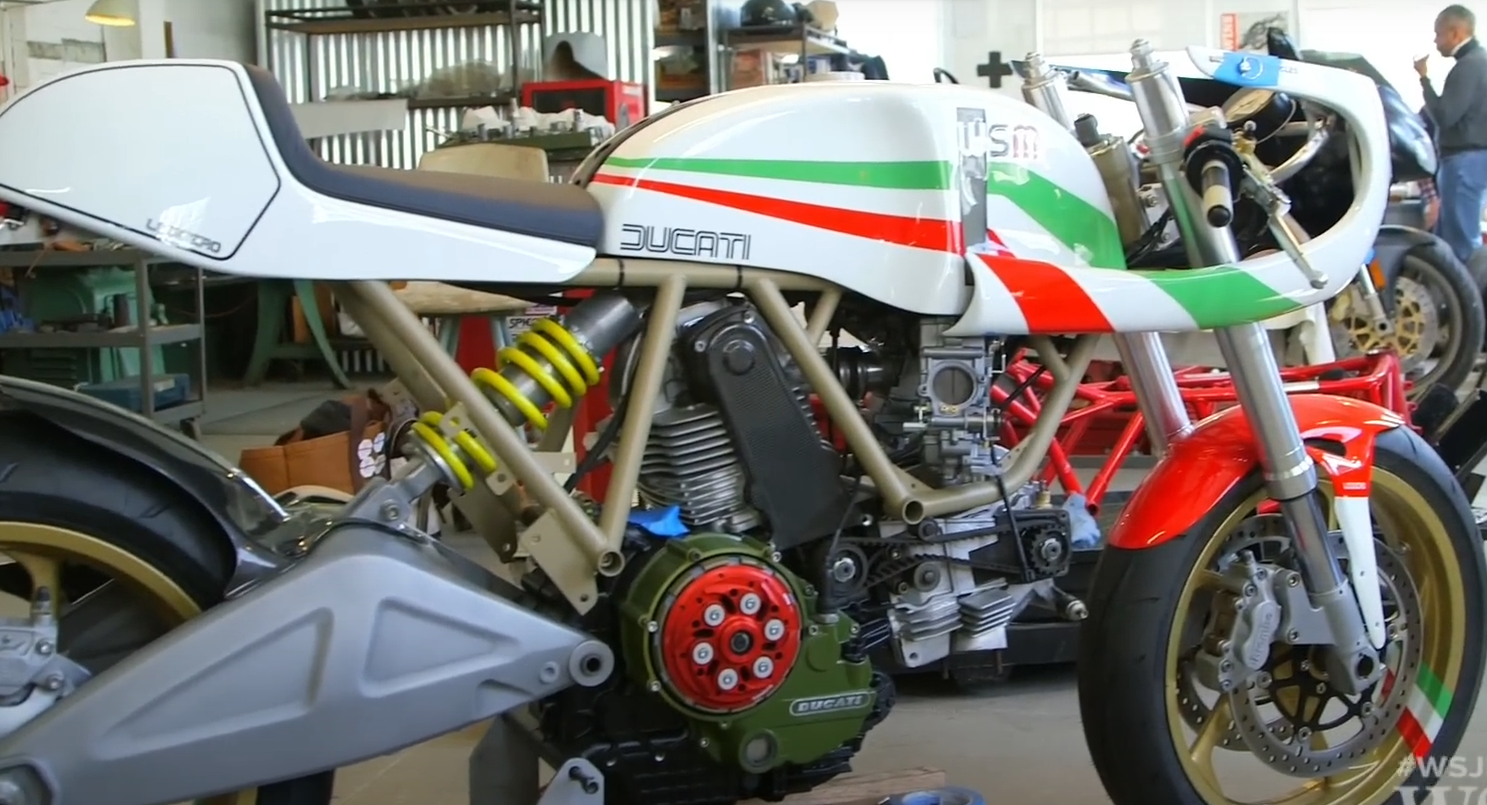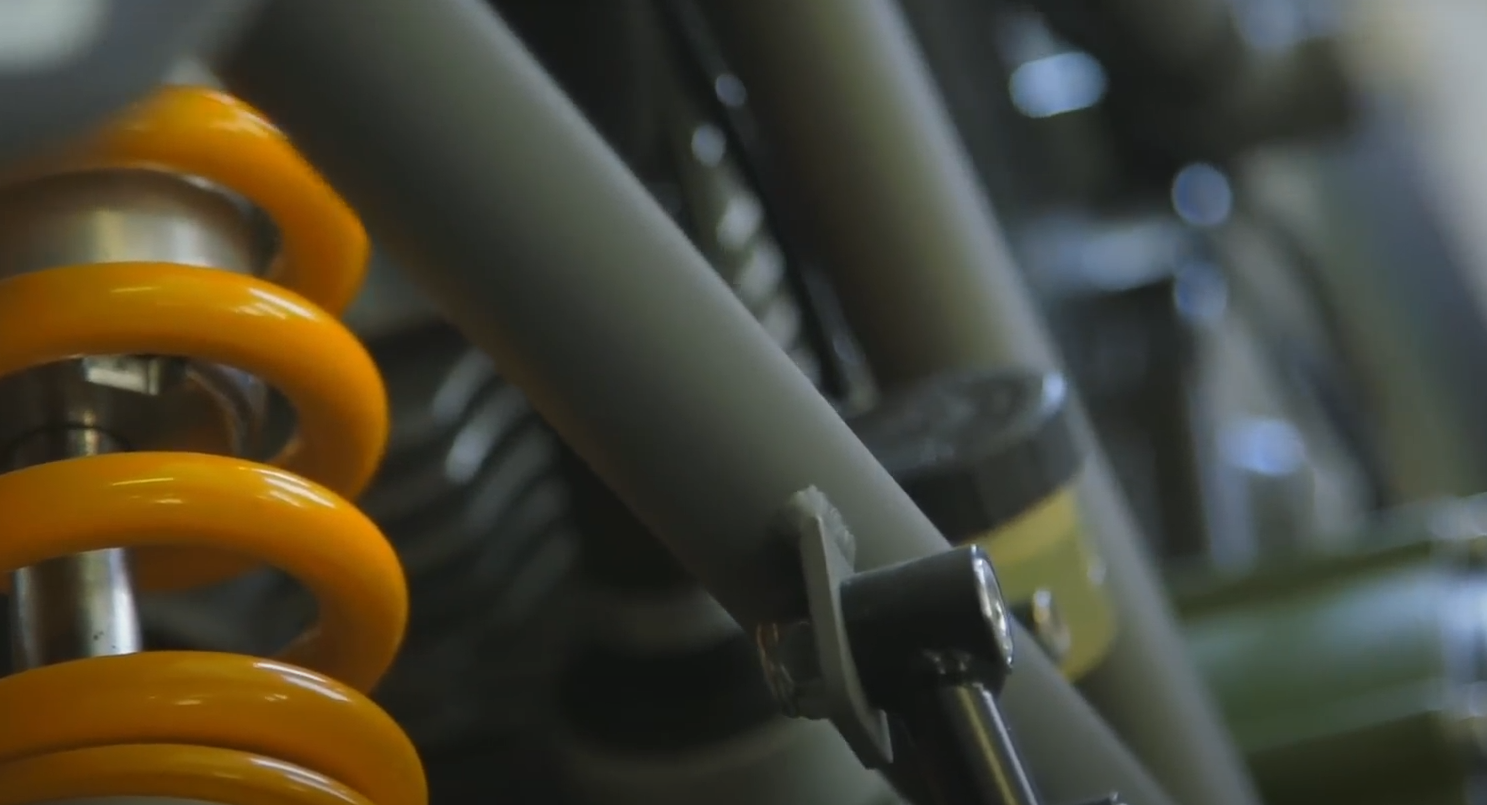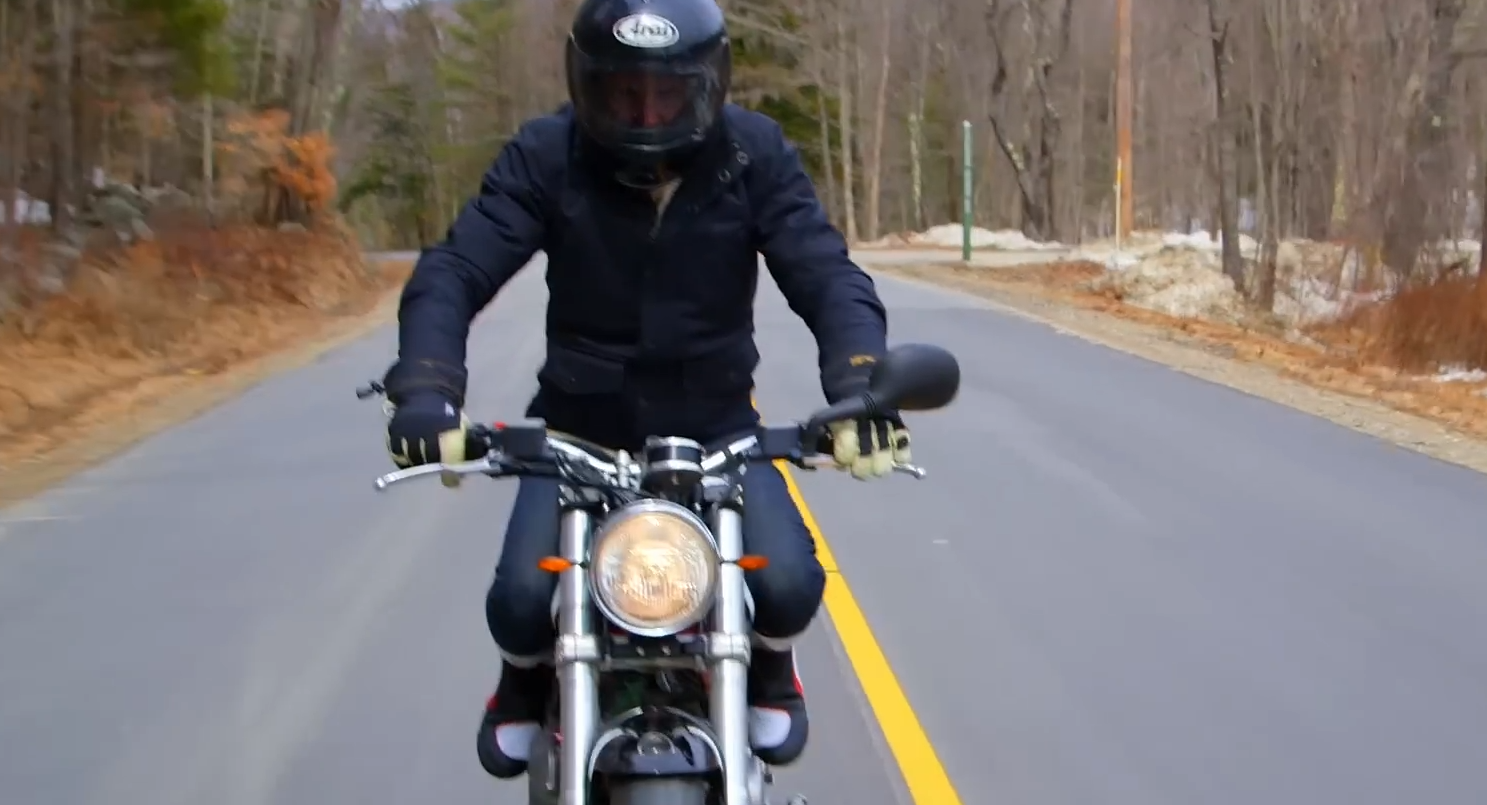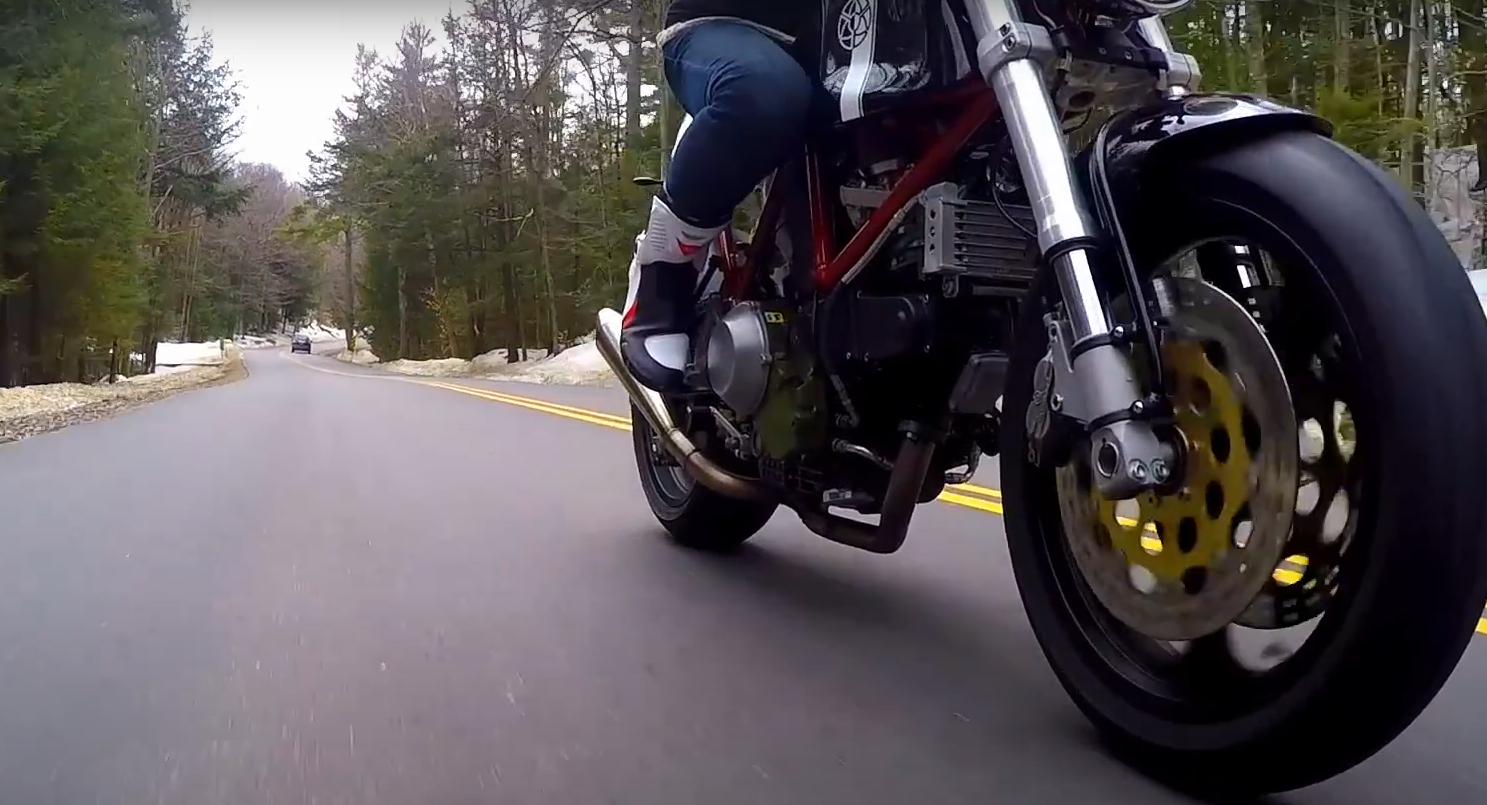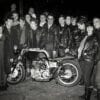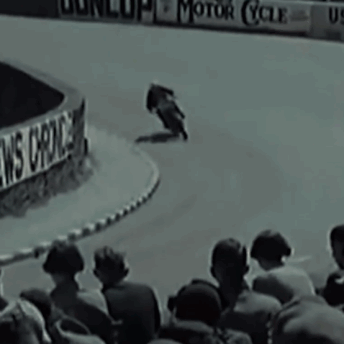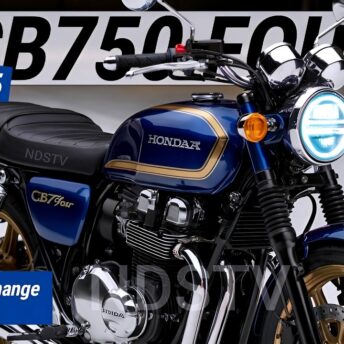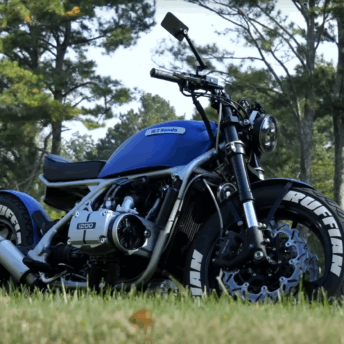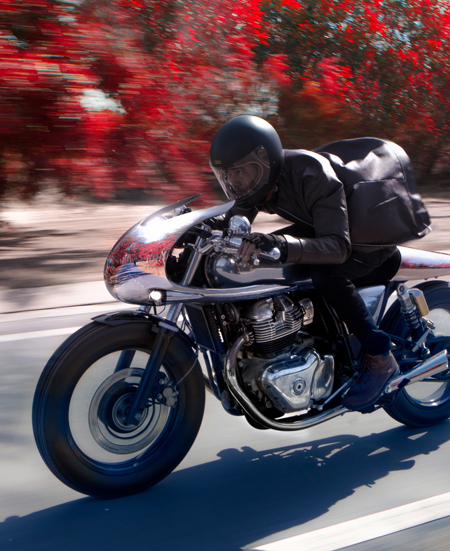Cafe racers stand apart from other motorcycles because of their stripped-down style and focus on performance. Built with a mix of modern parts and vintage influence, they highlight the engine and frame instead of hiding them behind panels. The result is a bike that looks simple, feels light, and delivers a direct riding experience.
In New Hampshire, builder Walt Seagull has gained attention for creating machines that blend old-school charm with modern technology. His work shows how these bikes balance tradition with updates like advanced brakes, suspension, and fuel systems. Riders connect with them not only for their design but also for the personal bond that comes from a minimalist approach.
Key Takeaways
- These bikes focus on simplicity and performance
- Builders mix classic style with modern upgrades
- Riders value the personal and direct connection
What Makes a Cafe Racer Unique
Handmade Builds and Classic Engines
Cafe racers often rely on custom-made parts paired with air-cooled vintage engines. Builders avoid covering the motor with large panels, choosing instead to highlight its raw design. This approach creates bikes that feel stripped down, light, and easy to handle.
| Feature | Description |
|---|---|
| Engine | Air-cooled, vintage style |
| Bodywork | Minimal, exposes mechanical parts |
| Build Process | Custom, small-scale workshops |
Sights, Sounds, and Old-School Feel
These motorcycles are defined by the sensory details they deliver. The sound of the motor, the vibration of the frame, and even the smell of fuel create an experience that connects rider and machine. Riders value this because it recalls the style and energy of bikes from the 1970s and 1980s while still offering modern performance.
- Sound: Distinctive engine note
- Vibration: Direct feedback from the frame
- Smell: Raw fuel and oil presence
Minimal Design and Refined Style
Cafe racers focus on simplicity and elegance rather than excess. Their design avoids bulky parts, instead presenting a clean look where every piece has a purpose. The result is a motorcycle that feels both functional and stylish without relying on flashy extras.
Key traits include:
- Slim frame and bodywork
- Exposed mechanical parts
- Balanced mix of vintage looks and modern function
Walt Seagull and the New Hampshire Workshop
Attention to Detail and Custom Builds
Walt Seagull works out of a small shop in New Hampshire where he creates motorcycles built around vintage air-cooled engines. His approach focuses on simple, clean design with an emphasis on showing the engine and bodywork instead of hiding them behind large panels.
He blends older design cues with modern upgrades like fuel injection, advanced brakes, and updated suspension. The result is a machine that feels current but still carries the style and character of bikes from the 1970s and 1980s.
A quick comparison of features:
| Feature | Factory Ducati | Seagull’s Build |
|---|---|---|
| Engine Style | Modern, enclosed | Vintage, exposed |
| Braking System | High-tech | High-tech |
| Suspension | Advanced | Advanced |
| Design Influence | Contemporary | Vintage-inspired |
| Rider Experience | Performance-focused | Minimal, personal |
Reaching a Select Audience
Seagull’s motorcycles appeal to riders who want something distinct and personal. Unlike mass-produced models, his builds target a smaller but dedicated market that values individuality and style.
While some link choppers to baby boomers and cafe racers to Generation X, Seagull sees broader interest. Younger riders are drawn to both styles, whether for the outlaw image of choppers or the stripped-down feel of cafe racers.
The lightweight frames, minimal parts, and exposed engines make his bikes easy to handle and give riders a direct connection to the machine. This focus on stripped-down function attracts those who want more than transportation—they want a bike that reflects their personality.
Unique Traits of Today’s Cafe Racers
Styling Influences from Ducati
Builders often borrow design cues that Ducati has refined for decades. These influences shape bikes that look timeless yet modern. The slim frames, exposed engines, and clean lines highlight a stripped-down style that avoids bulky panels.
A simple comparison shows the balance:
| Feature | Ducati Tradition | Modern Cafe Racer Use |
|---|---|---|
| Frame | Lightweight, minimal | Compact and uncluttered |
| Bodywork | Sleek, narrow | Exposed engine and parts |
| Aesthetic | Sporty elegance | Retro-inspired, raw look |
This approach blends past and present, giving the bikes both vintage appeal and fresh character.
Advanced Parts and Modern Performance
While the look stays classic, the parts are thoroughly modern. Builders use fuel injection, upgraded suspension, and powerful brakes. These upgrades make the bikes safer, smoother, and more reliable than their older counterparts.
Key elements include:
- Fuel injection for consistent performance
- High-performance brakes for stronger stopping power
- Modern suspension for better handling
The result is a motorcycle that feels agile and responsive, while still keeping the raw and simple spirit that defines a cafe racer.
Cultural Appeal of Cafe Racers
Shifts Across Age Groups and Wider Interest
Cafe racers often draw interest from Generation X, but their reach goes beyond one age group. Riders from different backgrounds see value in their lightweight frames, open engine design, and minimal bodywork. These traits give the bikes a direct, uncluttered feel that appeals to people who want a simple and personal connection with their machine.
Key points that attract riders include:
- Compact size for easier control
- Visible mechanics instead of hidden panels
- Classic styling paired with modern parts like brakes and suspension
Difference from Choppers and the Outlaw Image
Choppers gained strong popularity with Baby Boomers and still carry ties to the outlaw lifestyle. That scene continues to attract younger riders who want a rebellious image.
Cafe racers, by contrast, focus less on rebellion and more on style, speed, and stripped-down design. While choppers often emphasize bold statements and heavy customization, cafe racers highlight simplicity and performance. This creates a different type of cultural draw, one centered on clean design and a direct riding experience rather than the outlaw identity.
Personal Bond and Simple Design
Visible Motors and Open Frames
These bikes highlight the engine and frame instead of hiding them behind large panels. The raw look creates a direct link between the rider and the machine. Nothing feels covered up or distant, which makes the design feel honest and straightforward.
Key points:
- Engine remains exposed
- Minimal bodywork
- Focus on mechanical details
| Feature | Effect |
|---|---|
| Open engine | Stronger visual impact |
| Reduced panels | Cleaner appearance |
| Simple design | Easier to maintain |
Lightweight Build and Smooth Control
The bikes stay light and compact, which makes them easy to handle. Riders can move through traffic or winding roads with less effort. The smaller size also helps the rider feel more in tune with the motion of the machine.
Benefits of light weight:
- Faster response
- Easier cornering
- Less strain on the rider
This balance of simplicity and control keeps the ride personal and engaging without adding unnecessary complexity.
